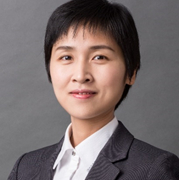- Level Professional
- Duration 20 hours
- Course by Shanghai Jiao Tong University
-
Offered by

About
Materials are the physical foundations for the development of science and technology. The human civilizations are historically designated by the evolution of materials, such as the Stone Age, the Bronze Age and the Iron Age. Nowadays, materials science and technology support most of the industrial sectors, including aerospace, telecommunications, transportation, architecture, infrastructure and so on. Fundamentals of Materials Science is a core module for undergraduates majored in materials science and engineering. This English course will be taught by Prof. Guo Qiang, Prof. Reddy and Prof. Liu Jing from Shanghai Jiao Tong University. An integrated approach of combining metallic, ceramic and polymeric materials will be adopted in this course, for the attendants to attain a deep understanding on the correlation of composition, microstructure, processing and properties in materials science. Let’s gather in this course and explore the wonderland of materials together.Modules
Introduction
1
Discussions
- Do you have previous experience in materials science?
2
Videos
- Course advertisement
- Course introduction
Module 1
1
Assignment
- Problem set 1
3
Videos
- 1.1 Atomic bonding
- 1.2 Crystal lattice
- 1.3 Crystal structure of metals
Module 1
1
Assignment
- Problem set 2
5
Videos
- 1.4 Crystallographic points, directions & planes
- 1.5 Crystal structure of ceramics
- 1.6 Polymorphism & allotropy
- 1.7 Structure of polymers
- 1.8 Characterization of crystal structure
Module 2
1
Assignment
- Problem set 3
4
Videos
- 2.1 Equilibrium concentration of point defects
- 2.2 Point defects in ionic solids
- 2.3 Concept of dislocations
- 2.4 Geometry of dislocations
Module 2
1
Assignment
- Problem set 4
5
Videos
- 2.5 Dislocations in real crystals
- 2.6 Motion of dislocations
- 2.7 Elastic properties of dislocations
- 2.8 Forces on dislocations
- 2.9 Surfaces & interfaces
Module 3
1
Assignment
- Problem set 5
4
Videos
- 3.1 Stress strain curves
- 3.2 Elastic & viscoelastic properties
- 3.3 Slip mechanism
- 3.4 Twinning & kinking
Module 3
1
Assignment
- Problem set 6
4
Videos
- 3.5 Grain refinement
- 3.6 Solid solution strengthening
- 3.7 Second phase & work hardening
- 3.8 Property evolution
Module 3
1
Assignment
- Problem set 7
5
Videos
- 3.9 Mechanical properties of ceramics (1)
- 3.10 Mechanical properties of ceramics (2)
- 3.11 Mechanical properties of polymers
- 3.12 Introduction of composites
- 3.13 Mechanical properties of composites
Module 4
1
Assignment
- Problem set 8
4
Videos
- 4.1 Kinetics of recovery and recrystallization (1)
- 4.2 Kinetics of recovery and recrystallization (2)
- 4.3 Grain growth after recrystallization
- 4.4 Dynamic recovery and dynamic recrystallization
Module 5
1
Assignment
- Problem set 9
4
Videos
- 5.1 Diffusion phenomena
- 5.2 Fick's law
- 5.3 Solutions to diffusion functions
- 5.4 Kirkendall & Darken
Module 5
1
Assignment
- Problem set 10
4
Videos
- 5.5 Thermodynamics of diffusion
- 5.6 Atomic mechanisms of diffusion
- 5.7 Factors that affect diffusion (1)
- 5.8 Factors that affect diffusion (2)
Module 6
1
Assignment
- Problem set 11
4
Videos
- 6.1 Basics of phase diagrams
- 6.2 Thermodynamics of phase diagrams
- 6.3 Effect of pressure on free energy
- 6.4 Free energy of binary systems
Module 6
1
Assignment
- Problem set 12
4
Videos
- 6.5 Graphic construction of phase diagrams
- 6.6 Gibbs phase rule
- 6.7 Construction of phase diagrams
- 6.8 Evolution of different phase diagrams
Module 6
1
Assignment
- Problem set 13
4
Videos
- 6.9 Spinodal decomposition
- 6.10 Lever rule
- 6.11 Binary phase diagrams
- 6.12 Steels
Module 6
1
Assignment
- Problem set 14
4
Videos
- 6.13 Cast irons
- 6.14 Three-component systems (ternary phase diagrams) (1)
- 6.15 Three-component systems (ternary phase diagrams) (2)
- 6.16 Three-component systems (ternary phase diagrams) (3)
Module 7
1
Assignment
- Problem set 15
4
Videos
- 7.1 Phase transformations basics of solidification
- 7.2 Nucleation
- 7.3 Heterogeneous vs homogenous nucleation
- 7.4 Temperature time transformation
Module 7
1
Assignment
- Problem set 16
5
Videos
- 7.5 Phase transformations in steels (1)
- 7.6 Phase transformations in steels (2)
- 7.7 Phase transformations in alloy steels
- 7.8 Precipitation
- 7.9 Precipitation in Al alloys
Auto Summary
Fundamentals of Materials Science, taught by esteemed professors from Shanghai Jiao Tong University, offers an in-depth exploration of metallic, ceramic, and polymeric materials. This professional-level course is designed for undergraduates in materials science and engineering. Over 1200 minutes, learners will delve into the relationships between composition, microstructure, processing, and properties. Available on Coursera with Starter and Professional subscription options, this course is essential for those aiming to excel in various industrial sectors.

Kolan M. Reddy

Liu Jing

Qiang Guo

